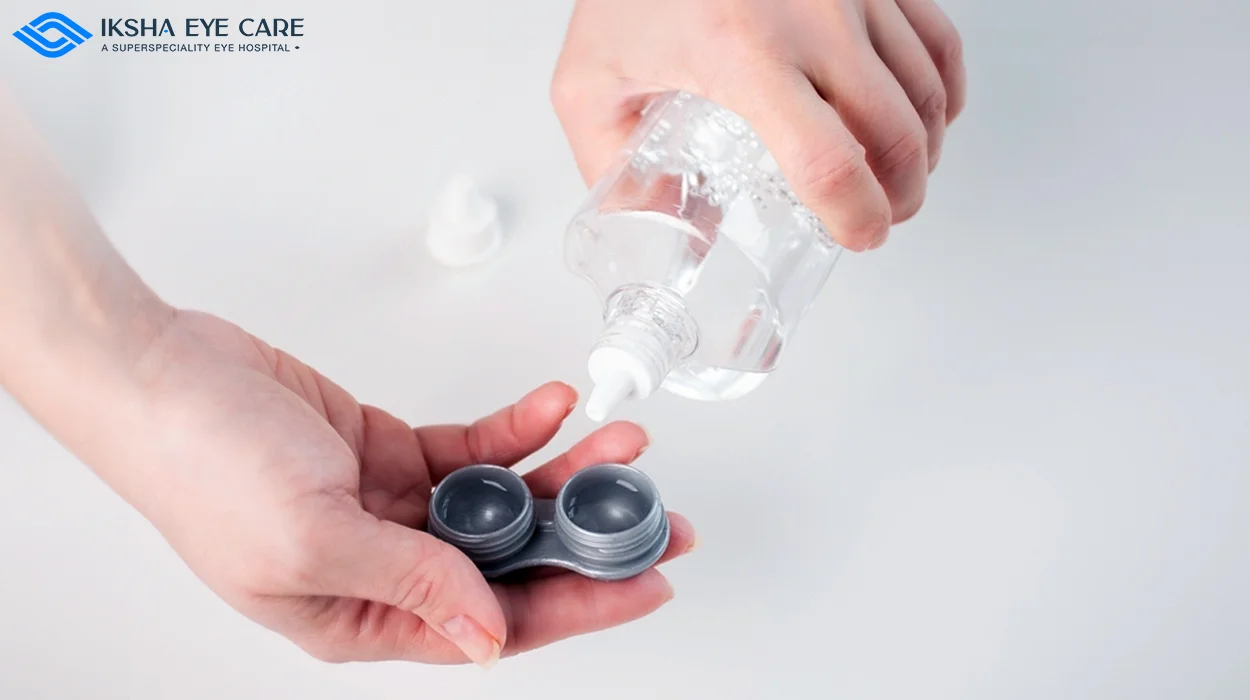Introduction
Contact lenses are a convenient and popular way to correct vision, but they require proper care and hygiene to keep your eyes healthy and comfortable. If not properly cared for, contact lenses can harbour bacteria and other irritants, leading to eye infections, inflammation, and other complications.
Why is contact lens care so important?
Contact lenses sit directly on your cornea, the clear front part of your eye. This makes them susceptible to the buildup of tears, proteins, oils, and other debris. Over time, this buildup can lead to discomfort, redness, and irritation. In addition, bacteria and other microorganisms can thrive in this environment, increasing the risk of eye infections.
Contact lens care best practices
Here are some best practices for contact lens care:
Wash your hands thoroughly with soap and water before handling your contact lenses.
This will help to prevent the transfer of bacteria and other germs to your lenses.
Use a fresh contact lens solution to clean and store your lenses.
Do not reuse old solutions or top off your answer with a new solution. This can increase the risk of bacterial contamination.
Clean your lenses daily using the rub and rinse method.
Place a few drops of contact lens solution in the palm of your hand and gently rub each lens for 10-15 seconds. Then, rinse each lens thoroughly with fresh solution.
Store your lenses in a clean, dry contact lens case.
Empty and rinse your case daily with fresh solution. Allow the case to air dry completely before storing your lenses.
Replace your contact lens case every three months.
This will help to prevent the buildup of bacteria and other contaminants.
Follow the recommended wearing schedule for your contact lenses.
Do not overwear your lenses, as this can increase the risk of eye problems.
Remove your contact lenses before swimming, showering, or bathing.
Water can contain bacteria and other microorganisms that can contaminate your lenses and lead to eye infections.
See your eye doctor regularly for eye exams and contact lens fittings.
This will help to ensure that your eyes are healthy and that your contact lenses fit correctly.
Additional tips for contact lens care:
Avoid sleeping in your contact lenses unless they are designed for extended wear.
Avoid using tap water to clean or store your contact lenses.
Do not use saliva to wet your contact lenses.
Do not use homemade contact lens solutions.
If your eyes are red, irritated, or itchy, remove your contact lenses immediately and see your eye doctor.
Common contact lens problems and how to prevent them:
Eye infections: Eye infections can be caused by bacteria, viruses, or fungi. To prevent eye infections, follow the contact lens care best practices listed above. If you develop an eye infection, see your eye doctor immediately for treatment.
Discomfort: Contact lens discomfort can be caused by various factors, including dryness, irritation, and debris buildup. To prevent contact lens discomfort, follow the contact lens care best practices listed above and use rewetting drops as needed.
Corneal damage: Corneal damage can be caused by overwearing contact lenses, sleeping in contact lenses, or wearing contact lenses that are too tight. To prevent corneal damage, follow the contact lens care best practices listed above and see your eye doctor for regular eye exams and contact lens fittings.
Conclusion
Contact lens care is essential for maintaining healthy eyes and comfortable vision. By following the best practices listed above, you can help reduce your risk of eye problems and enjoy the benefits of contact lenses for years to come.


